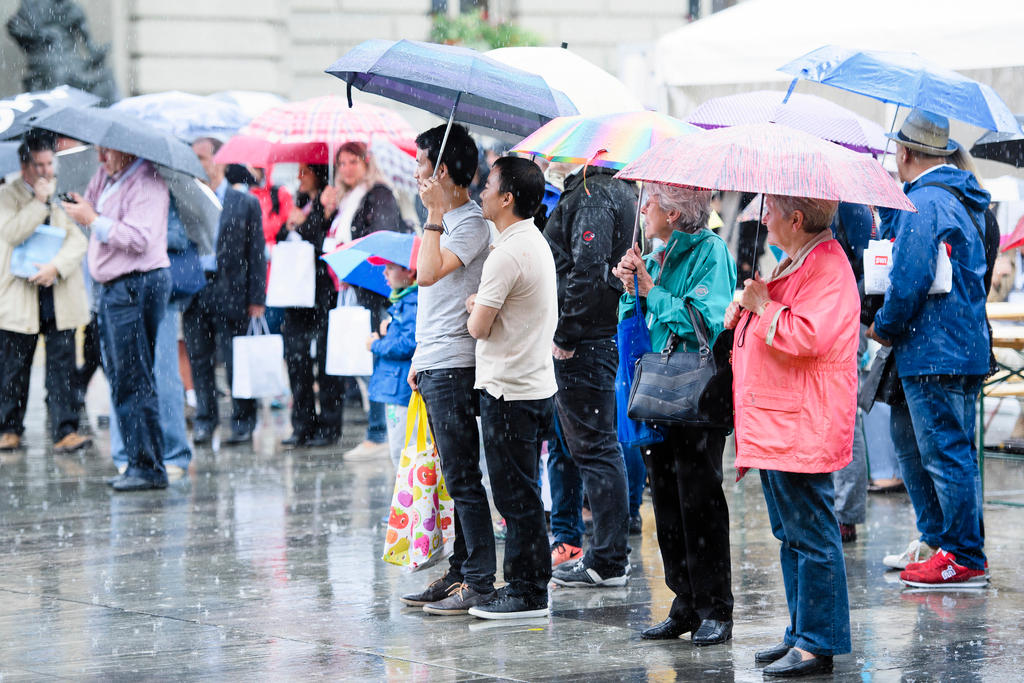Swiss Abroad angered by proposed social benefits cuts

Those emigrating from a non-EU country to Switzerland will not be eligible to receive supplementary benefits for a period of ten years, according to a proposal by a parliamentary committee. The Swiss Abroad community has reacted with concern.
The decision to toughen the rules of entry into the Swiss social security system was taken last week by the social affairs committee of the House of Representatives, which said that only those resident in the country for a period of at least ten years – and who have their permanent residence here – should be eligible to receive supplementary social benefits in case of need.
Supplementary benefits are a legal entitlement (not a form of social welfare) linked to one’s existing social security insurance. They are provided in cases where retired or incapacitated people are unable to cover their needs through pension or income.
However, the change will primarily affect Swiss citizens who wish to return to their country of origin after a period spent in a country outside of Europe.
According to the Federal Social Insurance Office, people leaving the EU to come to Switzerland – whether they are foreigners or Swiss citizens – enjoy the same (full) rights, thanks to the free movement of personsExternal link agreement. Foreigners from non-EU states already must wait 10 years to qualify for supplementary benefits; the time delay for refugees, provisional immigrants, and stateless people is five years.
The Organisation of the Swiss AbroadExternal link (OSA) has reacted angrily: “anybody that transfers their residence abroad, even for a short period, will be at a disadvantage due to this decision,” said director Ariane Rustichelli.
She cited the example of a Swiss couple who moved for one year to North America. “Back in Switzerland, the couple divorced. As the woman was almost 60, she couldn’t find a job. But if, when she reaches retirement age, she applied for supplementary benefits, she will be refused because of this 10-year time delay,” Rustichelli said.
The OSA director cannot understand why a Swiss citizen who has contributed social insurance payments before a period abroad should be denied benefits. “This amounts to discrimination between Swiss citizens at home and their compatriots abroad,” she said. “Are there two types of Swiss people?”
Combatting benefits tourism
The decision of the majority of the Committee runs against the trend of growing international mobility, Rustichelli continued. “On one hand, the same politicians say how important it is for the Swiss economy that people gain international experience. On the other hand, these same politicians are the ones who want to take away the right to supplementary benefits.”
The Committee members cited the fight against benefit tourism to justify their decision – notably immigrants from EU countries. And if the freedom of movement agreement grants an exception to EU citizens from the time delay, the committee president said, then the agreement itself should be changed. Ariane Rustichelli did not comment on this statement.
The House of Representatives is likely to ratify the committee’s decision when it meets on Monday. The OSA is nevertheless hopeful that the Senate will show more sympathy towards the Swiss abroad and oppose the plans.

More
What Swiss abroad must consider before heading home
Translated from French by Domhnall O’Sullivan, swissinfo.ch

In compliance with the JTI standards
More: SWI swissinfo.ch certified by the Journalism Trust Initiative




You can find an overview of ongoing debates with our journalists here. Please join us!
If you want to start a conversation about a topic raised in this article or want to report factual errors, email us at english@swissinfo.ch.